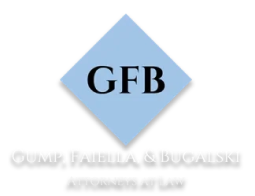If you file an insurance claim, receiving an outright denial might seem like the worst possible outcome. However, you would at least have the opportunity to appeal the decision. If, on the other hand, negotiations commence and the insurance adjuster offers an unfair settlement, you might be tempted to accept the offer rather than pay a lawyer to help. However, if the payout is too low to cover your future medical bills, lost income, and other damages, you could wind up overwhelmed debt.
This scenario plays out far more often than it should. Insurance companies know that claimants are in a financially vulnerable position and are often willing to accept low settlements. What many people don’t know is that people who hire an experienced attorney often recovery more money. More, money even after paying fees. lawyers can al;so help negotiate medical bills, and reduce liens and other claims arising from your inability to pay while you recovered. Handling an injury claim is not the same as negotiating over a car or other property. If you believe an insurance company has offered an unfair payout, contact Gump & Faiella to discuss your case. The first consultation is free. We work on contingent fees, which means we recover a percentage only if we recover money for your injuries.
Our personal injury and insurance attorneys help clients when the need it most. We have handled numerous complicated, high-stakes cases against some of the country’s largest insurance companies. Call 888-262-2718 to schedule a free consultation with an insurance lawyer in Missouri.
Let’s explore the steps you should take if the claims adjuster refuses to offer a fair settlement:
-
Gather Evidence of Economic Damages
The more evidence you have to prove the value of your damages, the easier it will be for your attorney to negotiate for a fair settlement. You can start by gathering evidence of your economic damages such as healthcare expenses, lost income, and property repairs. Depending on the types of damages you have incurred, the following evidence might strengthen your case:
- Medical bills;
- Tax returns and pay stubs;
- Quotes from mechanics or contractors; and
- Invoices for home care, mobility aids, and other injury-related expenses.
-
Write Down How the Injuries Have Affected Your Daily Life
Proving non-economic damages is more complicated than proving economic damages because the latter can be objectively verified with invoices and receipts. But since pain and suffering might account for a significant portion of a personal injury settlement, it is important that you pursue them if they are warranted given the facts of your case. In addition to medical records, expert witness testimony, and the testimony of your loved ones, your lawyer might be able to use your personal journal about how your injuries are affecting your daily life when proving non-economic damages.
-
Call an Insurance Lawyer
If the insurance company is refusing to cooperate, your first call should be to an insurance attorney. Simply hiring a lawyer will send a message to the insurer that you expect to be treated fairly. Also, a seasoned attorney will have the negotiating experience and resources to help you fight for the settlement you deserve.
Call 888-262-2718 to Speak with an Insurance Attorney in Missouri
At Gump & Faiella, we have won several multimillion-dollar settlements and jury verdicts in cases against large corporations and top insurance companies. Call 888-262-2718 or fill out our Contact Form to schedule a free case evaluation with one of our strategic Missouri insurance lawyers.
The post 3 Steps to Take If the Insurer Won’t Offer a Fair Settlement appeared first on Gump & Faiella, LLC | Missouri.

